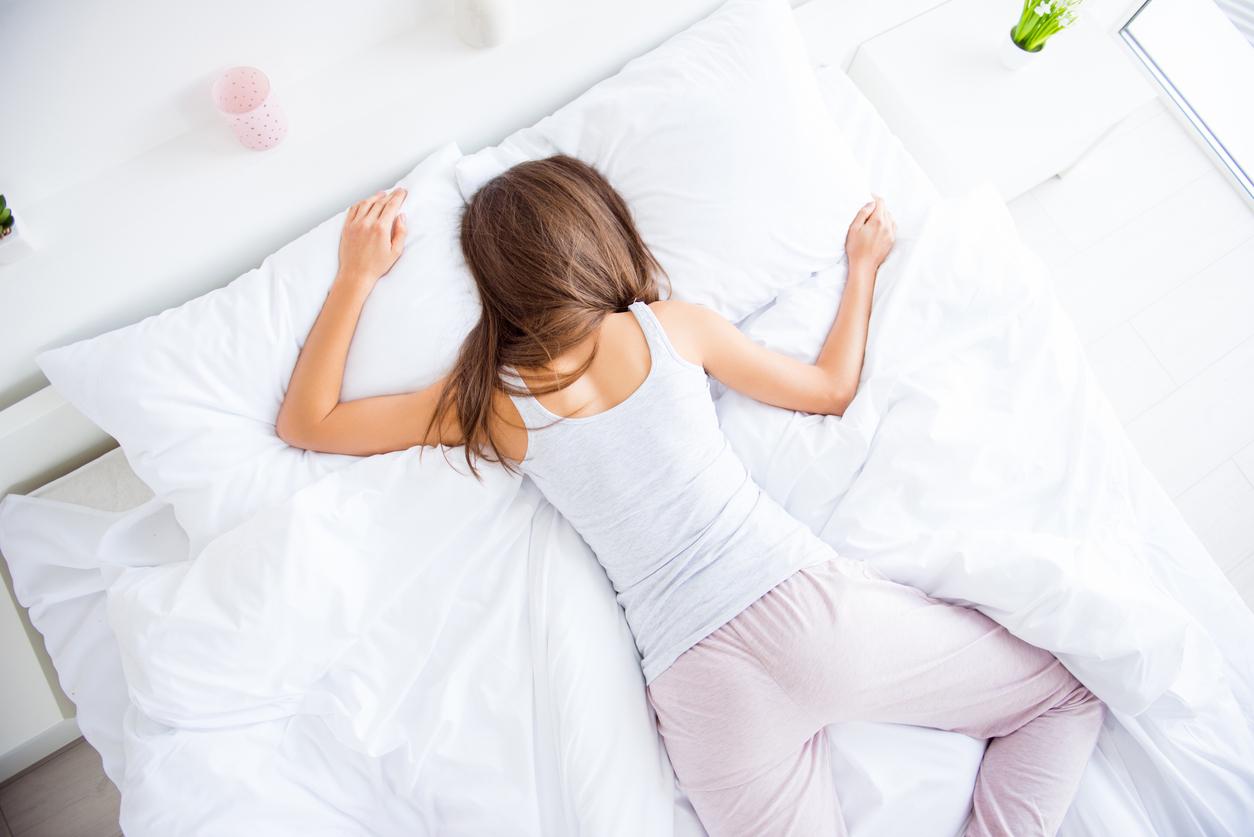What are drugs useful for?
“First you have to make sure you have good sleep hygiene. Medicines should be taken when essential ”, emphasizes Dr Isabelle Poirot. Sleeping pills are suitable for acute insomnia. “These are the adjustment insomnia after, for example, an accident in life such as bereavement, illness, moving”, explains Dr Agnès Brion. In case of’insomnia chronic, they have their place in certain situations. For example, when you need to be efficient the next day, a major concern for insomniacs. “The hypnotics are also useful when the psychic suffering is very important”, continues Dr Poirot. As well as in case of work in staggered hours.
What are the most common?
The most widely used drugs are benzodiazepines or related molecules which act on the same receptors (Havlane®, Imovane®, Mogadon®, Noctamide®, Normison®, Nuctalon®, Stilnox®). Antihistamines, allergy medications, also have sedative properties. “Atarax®, for example, is often prescribed for pregnant women and has a marketing authorization (MA) for children over 3 years old”, specifies Dr Isabelle Poirot. Theralene® (an antihistamine) may also be prescribed for insomnia. Another antihistamine, Donormyl®, can be purchased without a prescription from pharmacies. “Antidepressants can also be of interest to people withanxiety or from depression, but in this case their use is outside the Marketing Authorization “, explains our specialist. An antidepressant like mianserin is sometimes prescribed in very small doses for “sleep maintenance”.
How do sleeping pills work?
Sleeping pills do not produce a sleep natural. Most of them will decrease the amount of deep sleep, considered the most restorative. They will therefore improve the quantity and duration of sleep, but not its quality. This is why their long-term use is not the miracle solution against insomnia. In addition, during frequent and prolonged use, the body and mind get used to the drug and develop tolerance. “When you are an insomniac, you are so afraid of not sleeping that you sleep poorly, even with medication. But we say to ourselves “it would be worse without them” “, indicates Dr Isabelle Poirot. It is a real vicious circle: it is impossible to stop drugs that prove to be less effective. So we increase the dose …
How long can it be taken without danger?
Addiction varies from person to person. To avoid this risk of dependence, taking benzodiazepines (and related drugs) should not exceed four weeks. In general, their intake must be discontinuous: either regular but limited to one or two intakes per week, or by periods of fifteen days or three weeks interrupted by prolonged interruptions. “For antihistamines, treatment can last three months. Antidepressants are them delivered over long periods …, specifies Dr Isabelle Poirot. Then all sleep hygiene techniques should take over. The problem is that there are very few … The health authorities encourage behavior change but the healthcare offer remains quite limited. “
What place for a melatonin-based treatment?
Melatonin is a hormone produced naturally by the brain that plays a role in the wake / sleep cycle. Normally, it is released at nightfall to make it easier to fall asleep. Secretion peaks between 2 and 4 a.m., then decreases during the second half of the night to prepare for waking up. “Melatonin may be of interest in the elderly, in whom the production of this hormone is declining”, estimates Dr Agnès Brion. In France, there is only one melatonin-based drug dosed at 2 mg. It is reserved for insomnia in people over 55 years old. Melatonin also exists in lower dosages with dietary supplement status (see previous pages). With melatonin also the treatment should be short, because it could completely disrupt the rhythm of sleep.
What are the risks associated with sleeping pills?
Benzodiazepines are particularly dangerous in older people who eliminate them more slowly. Hence the risk of accumulation, a source of overdose and adverse effects. They are thus responsible for falls and fractures. “When you wake up at night to go to the bathroom, you don’t know where you are anymore, it’s the delirium linked to these molecules. At that point, you may fall ”, explains Dr Isabelle Poirot. Better to avoid swallowing it when you are installed in front of the TV, so as not to be too drowsy when going to bed. Benzodiazepines are also responsible for disorders of immediate memorization. “Most do not pose a problem of attention the next day, especially for vehicle drivers. On the other hand, if you wake up in the middle of the night, never repeat a hypnotic ”, warns our specialist.
|
NEVER STOP BRUTALLY You should never stop a sleeping pill that you have been taking for more than four months, or even for several years overnight. Insomnia is likely to come back and get worse. This is called the rebound effect. It is necessary to be accompanied by your attending physician who will gradually reduce the doses. Weaning can last several weeks, even several months or more. When withdrawal begins, the doctor schedules close consultations to check that there are no symptoms related to the withdrawal. Hospitalization may be necessary in some people who are very dependent or who will develop signs of withdrawal (confusion, hallucination, etc.). Good to know: thermal cures have shown their effectiveness in weaning. For more information: www. medecinethermale.fr or tel. : 0 811 90 80 80. |
Also consult our files
Better sleep
Insomnia
And you, do you take sleeping pills? Come and discuss it on our forums

















